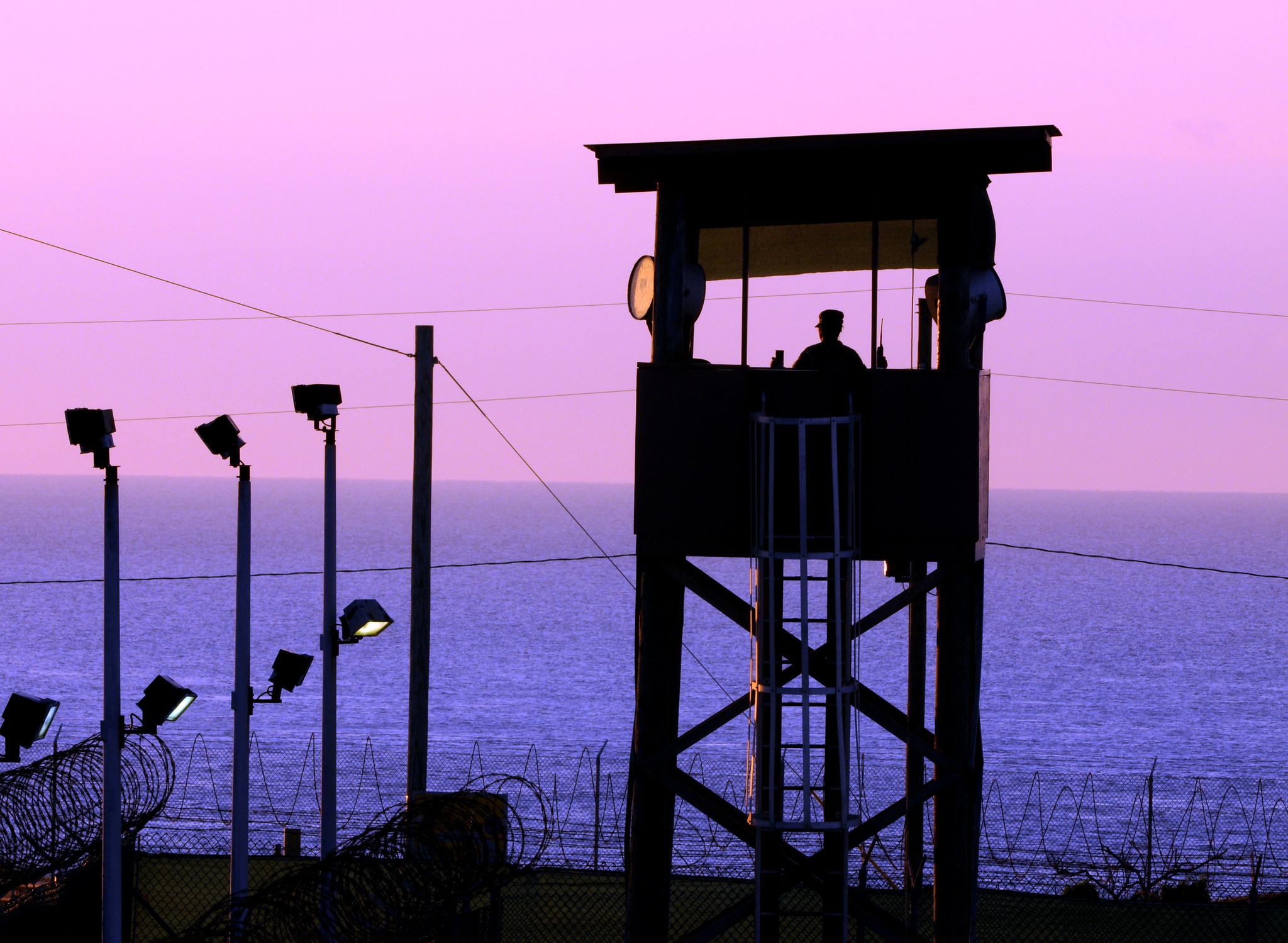October 15 Commissions Session #1: Housekeeping Stuff
Judge James Pohl takes the bench and calls the hearing to order, his robes emanating (as always) rays of the purest judicial authority. “Please be seated,” he says. He clips on the microphone, which greets us with fuzz-sounds and feedback before calming down.
Preliminary matters are, unsurprisingly, the first order of business. We’ll break at 12:30 for lunch and afternoon prayer, the court says. The defense had asked for a 4:00 p.m. stop-time, today and tomorrow, and the government had not opposed that request.
Published by The Lawfare Institute
in Cooperation With

Judge James Pohl takes the bench and calls the hearing to order, his robes emanating (as always) rays of the purest judicial authority. “Please be seated,” he says. He clips on the microphone, which greets us with fuzz-sounds and feedback before calming down.
Preliminary matters are, unsurprisingly, the first order of business. We’ll break at 12:30 for lunch and afternoon prayer, the court says. The defense had asked for a 4:00 p.m. stop-time, today and tomorrow, and the government had not opposed that request. For those reasons, Judge Pohl will adhere to the defense’s proposed timetable.
The next before-we-really-get-going issue is raised by Cheryl Bormann, lawyer for Walid Bin Attash. She says the defense intends, later today, to ask the commission to order the government to furnish adequate workspaces to the defense. According to Bormann, the defense’s expert has said that conditions in the defense’s offices are toxic, and would sicken defense attorneys if they ventured in. The lawyer adds that the alternative defense workspace is exceedingly cramped, and that the defense has but one printer to use. Pohl bats this away, and says Boorman must file a written motion---which he’ll consider later today. Boorman adds that there’s a problem with the audio feed for some defense counsel in the room’s rear. That occasions a brief delay as technical personnel check the P.A. system, and ensure that all accused can hear simultaneously translation.
The problem resolved, we turn to AE30---that is, a defense motion to compel the appointment of a civilian lawyer for Mustafa al-Hawsawi. In his papers, Walter Ruiz, al-Hawsawi’s lone lawyer, had asked the Convening Authority to appoint additional attorneys to the defense team, including another “Learned Counsel,” or a lawyer with special experience in capital cases. But the attorney rises not to address that request, but instead some related ones. Some motions aren’t on the docket, Ruiz notes, but nevertheless bear directly on the issues which the defense and the government wish to address. For example, a few omitted items have to do with witness testimony. That’s why Pohl declines to add the witnesses to the agenda formally---he wants to hear argument on the substantive issues first, and then turn to witness matters afterwards. If no testimony is necessary, then there's no need to argue about motions to compel testimony from this or that person. The court adds that the day’s procedure is flexible. The docketing order, he says, is a “living document.”
Pause as we contemplate an non-originalist approach to the scheduling instructions. That’s when Brig. Gen. Mark Martins, the Chief Prosecutor, stands and presents the government’s view. He agrees with Ruiz that, in fact, some witnesses could be examined in advance of (or at least along with) the substantive motions that Judge Pohl has included on the day's schedule. Peace having broken out, Judge Pohl says he’ll take the issue under advisement, and perhaps re-order the motions, or add related ones, as needed.
Wells C. Bennett was Managing Editor of Lawfare and a Fellow in National Security Law at the Brookings Institution. Before coming to Brookings, he was an Associate at Arnold & Porter LLP.


-final.png?sfvrsn=b70826ae_3)

